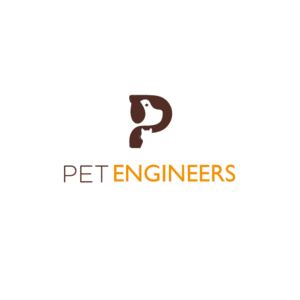
Key Takeaway:
- Impaction is a blockage in the gargoyle gecko’s digestive tract that hinders bowel movement. Hence, less frequent or no poop.
- Improper husbandry, ingesting substrate, lack of supplementation, dehydration, and large or tough feeder insects are the leading causes of impaction.
- The signs of an impacted gargoyle gecko include; lethargy, lack of appetite, difficulty breathing, not pooping, weight loss, and a bloated stomach.
- You can treat impaction by administering a few drops of olive oil, gently rubbing the stomach, soaking the gecko in lukewarm water, or visiting the vet.
- Preventing impaction is easier when you use the right substrate, practice the right husbandry, keep the gargoyle gecko hydrated, and feed small and soft insects.
You know that relief that comes after taking a really good poop? Well, your gargoyle gecko needs it too.
Unfortunately, gargoyle geckos may sometimes experience difficulty passing stool. That happens when there is a blockage in the gecko’s digestive system.
The blockage is what we refer to as impaction. An impacted gargoyle gecko will have constipation, loss of appetite, and immense discomfort.
I am sure you understand the discomfort and problems that come with constipation (those who’ve experienced it know the feeling).
What Is Gargoyle Gecko Impaction?
Gargoyle gecko impaction is when a blockage occurs in the intestines of your gecko, preventing the normal passage of fluid and food through the gut.
The blockage can be in the form of fecal mass or indigestible material.
This blockage may seem minor but should be addressed quickly before it turns fatal.
If impaction is left untreated, the blockage will continue pressing on the blood vessels and nerves until the gargoyle gecko goes into clinical shock and eventually death.
Causes Of Gargoyle Gecko Impaction
Understanding what causes impaction in gargoyle geckos can help you protect your pet. So, let’s get right into the common causes of gargoyle gecko impaction.
Ingesting Substrate
Using loose substrate in an enclosure can expose your gargoyle gecko to impaction. You see, geckos can pick up loose substrate as they ingest their food.
Unfortunately, these geckos can’t digest substrate and that could become a problem once it gets to the gecko’s gut.
For instance, if your gargoyle gecko ingests large amounts of substrate, it might harden and form a mass that blocks the movement of food and fluids through the gut.
Large or Hard Feeder Insects
Insects are a main part of your gargoyle gecko’s diet. But do you know that insects can also impact your gecko?
Well, feeding large or hard insects to your gecko can be a problem.
Some gargoyle geckos can experience difficulty digesting insects with a tough exoskeleton.
Large and tough feeders get stuck in the gecko’s gut, causing a blockage.
Dehydration
Dehydration is one of the key reasons why we experience constipation. Amazingly, dehydration has the same effect on gargoyle geckos and other reptiles.
Dehydration affects the gecko’s digestion and other crucial functions of the body. When that happens, your gargoyle gecko will have a fecal mass blocking the gut.
For your information, dehydration can happen if you fail to provide the gecko with drinking water.
This problem can also occur when you fail to observe the humidity requirements of a gargoyle gecko.

Incorrect Temperatures
As you strive to maintain high humidity in your gecko’s vivarium, remember to keep the temperatures in the correct range.
Allowing the temperatures to fall too low can affect your gargoyle gecko’s ability to digest food. As a result, your gecko might develop a blockage in its digestive tract.
Inadequate Supplementation
All reptiles including gargoyle geckos need vitamin D. This explains why you need to supplement your gecko with vitamin D3 or provide it with UVB lighting.
Failing to supplement your gecko with vitamin and calcium supplements can interfere with digestion and later cause constipation or impaction.
Symptoms of Impaction in Gargoyle Geckos
Knowing the symptoms of impaction can help you save your gargoyle gecko’s life. Impaction isn’t so obvious, but it is hard to miss it if you are keen.
Besides, your gecko’s behavior should tell when something is off. Here are the symptoms you should look for:
Gecko Doesn’t poop
A healthy gecko that feeds well should poop almost every day. But if your gecko hasn’t pooped in five days, then it’s most likely impacted.
Look for poop in the hides and other areas of your vivarium to be sure that your gecko has a problem.
Lack of Appetite
As you would expect, a blockage in the gut should definitely cause your gargoyle gecko to lose appetite.
Besides, your gecko may not have space for more food if it’s yet to digest the previous food.
So, if your pet gecko hasn’t been feeding well, you are probably dealing with impaction.
Lethargy
Have you noticed that your gargoyle is no longer active like it used to be? Well, inactivity and lethargy could be symptoms of impaction.
The discomfort caused by impaction can induce lethargy. If the tank’s conditions are right but your gecko has little to no movement, it could be experiencing impaction.
Bloated Stomach
Another sign you should look for is bloating. A blockage in the digestive tract will cause your gecko’s stomach to swell abnormally.
Don’t assume that the bulge in the gecko’s stomach is normal. Either you overfed your gecko or it’s experiencing impaction.

Weight Loss
As you can see, all these symptoms go hand in hand. The lack of appetite caused by impaction will ultimately lead to weight loss.
Your gargoyle gecko may shed weight quite fast if impaction continues.
Other symptoms that could signal gargoyle gecko impaction include:
- A weird dark spot on the gecko’s belly
- Labored breathing
- Straining when pooping
- Regurgitation
A combination of any of the above symptoms should tell you that your gargoyle gecko is impacted.
So, don’t be quick to treat your gecko for impaction just because you’ve spotted one symptom.
How To Treat Impaction in Gargoyle Geckos
Impaction won’t clear on its own. Therefore, you must take action to alleviate the discomfort and save your gargoyle gecko’s life.
Once you identify that your gecko is impacted, try the following treatment methods:
- Massage the belly – giving your gargoyle gecko a gentle massage on the underside of its belly can help clear mild blockages
- Hydration – Providing your impacted gecko with freshwater can help dissolve and clear any fecal blockages from the digestive tract
- Administer olive oil – a few drops of olive oil can act as a natural laxative when administered to the gecko.
- Soaks – soaking an impacted gargoyle gecko also works wonders. You just need to soak the gecko in lukewarm water for a couple of minutes. Repeat this procedure a couple of times a day until the gecko poops.
- Visit a vet – if none of the above remedies work, it’s time to seek help from a vet. Surprisingly, most serious blockages can only be addressed by a vet.
Treating impaction once you notice the early signs should save you a lot of trouble. Don’t ignore any sign no matter how minor it looks.
4 Ways To Prevent Gargoyle Gecko Impaction
Do you know that you can take preventative measures to protect your gargoyle gecko from impaction?
Surprisingly, you’ll rarely deal with impaction if you heed the advice we’ve discussed below:
Use the right substrate
Ingesting substrate is the leading cause of impaction in geckos and reptiles. So, if you can avoid using any substrate that the gecko can ingest accidentally, the better.
Stay away from coconut fiber or Large particle bedding such as cypress bark, and cider wood shavings.
You should use bioactive substrates or artificial substrates such as paper towels or blue shop towels to reduce the risk of impaction.
Be careful about the food size
Feeder insects should never exceed the size of your gecko’s head. You should stick to small insects to reduce the risk of impaction.
While at it, make sure the feeder insects do not have a tough exoskeleton.
Gargoyle geckos may have a hard time chewing on tough insects. As a result, geckos will swallow them whole and that might increase the risk of impaction.
Provide Adequate UVB
Geckos are just like any other animal species in the sense that they need vitamins and calcium.
Therefore, you need to install UVB lighting in the tank to help the gecko synthesize vitamin D3.
Vitamin D3 allows the gecko to absorb calcium from its food. Both supplements reduce the risk of impaction in gargoyle geckos.

Maintain the right humidity and temperatures
Providing your gargoyle gecko with a humid and warm environment is the key to keeping sicknesses at bay.
You see, gargoyle geckos need high humidity to stay hydrated. And with enough hydration and proper temperatures, digestion will be easier for the geckos.
Summary
Impaction in gargoyle geckos has always been a hot topic among reptile keepers. However, you shouldn’t allow impaction to be the reason why your geckos die.
Practicing proper husbandry, choosing the right substrate, and supplementing your geckos should be enough to keep impaction at bay.
But if your gecko ever gets impacted, don’t hesitate to talk to a vet.
